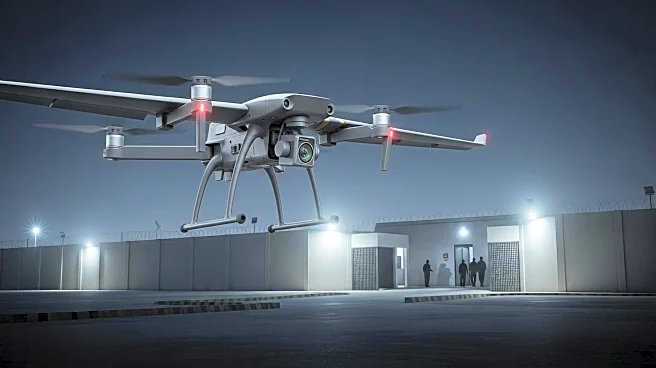What's Happening?
An investigation has revealed that Israeli intelligence successfully targeted Iranian leadership by exploiting security lapses among their bodyguards. The report details how Israeli operatives used advanced technology, including satellites and electronic intelligence, to track sensitive meetings of Iranian officials. Despite precautions taken by Iranian leaders, such as avoiding mobile phones, Israeli forces managed to strike a secretive meeting of the Supreme National Security Council in Tehran. The attack exposed vulnerabilities in Iran's security apparatus, as Israeli intelligence had hacked the phones of bodyguards accompanying the leaders. This breach allowed Israel to precisely target military commanders and nuclear scientists during the initial phase of the conflict.
Why It's Important?
The breach of Iranian security by Israeli intelligence highlights significant vulnerabilities within Iran's defense and intelligence systems. This development has profound implications for Iran's national security, as it demonstrates the effectiveness of Israeli intelligence operations in penetrating high-level security measures. The ability to track and target key figures in Iran's military and nuclear programs could potentially slow Iran's nuclear ambitions and alter the balance of power in the region. Additionally, the incident underscores the importance of cybersecurity and operational security in modern warfare, as even minor lapses can lead to significant strategic losses.
What's Next?
In response to the breaches, Iran has implemented stricter security protocols, including banning smartphones for senior officials and enhancing protection measures. The Iranian government is likely to conduct further investigations to identify and rectify security flaws. Additionally, Iran may seek to retaliate or bolster its intelligence capabilities to prevent future infiltrations. The ongoing conflict may lead to heightened tensions between Iran and Israel, with potential diplomatic and military repercussions. Both nations are expected to continue their intelligence operations, aiming to gain strategic advantages in the region.
Beyond the Headlines
The incident raises ethical and legal questions regarding the use of technology in warfare and intelligence operations. The ability to hack personal devices and track individuals poses significant privacy concerns and challenges international norms regarding espionage. Furthermore, the targeting of scientists and military personnel highlights the blurred lines between military and civilian roles in modern conflicts. This development may prompt discussions on the need for international regulations governing cyber warfare and intelligence activities.










